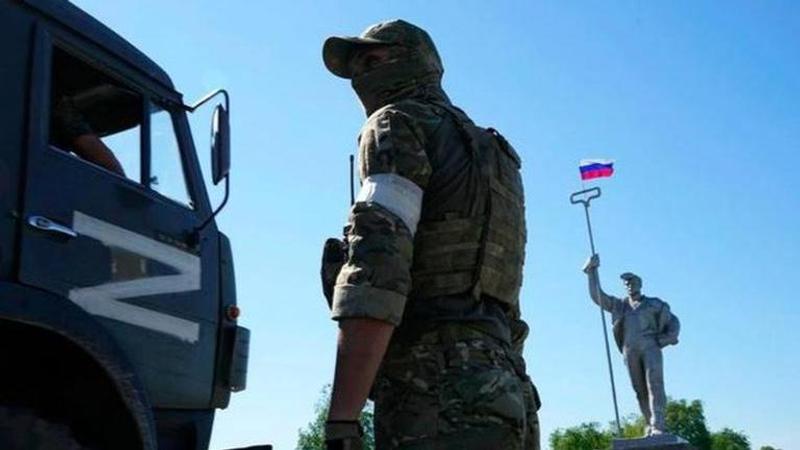Published 20:03 IST, March 18th 2023
Berlin alleges Kyiv 'playing cynical game with Russian deserters' promising asylum in EU
'I Want to Live' project is run by Ukrainian coordination centre for prisoners of war [POWs], in collaboration with Ukraine Defense Ministry and intelligence.

The German government on Friday refuted Ukraine's military and intelligence services' attempts to lure the Russian soldiers, and disenfranchised conscripts in the Russian military to desert and surrender with promises of asylum in Western European countries such as Germany and the Netherlands. "No such program exists," Berlin clarified in a letter that was dispatched by Bundestag member Andrej Hunko to Interior Ministry, accessed by German news outlet NachDenkSeiten.
Ukrainian officials launched the “I Want to Live” hotline that outlined step-by-step information on abandoning the ranks of the Russian military for soldiers who did not want to fight in Ukraine. Ukrainian intelligence project intended to encourage Russian soldiers to surrender by calling a special hotline. Republic could not independently verify whether such a project is run by the Ukraine military or the EU.
The project claims that an estimated 6,543 Russian personnel have surrendered since the hotline was launched in September 2022. Russian soldiers ring a discreet number that connects them to a call centre said to have been moved to a secret location, and they are guided on further steps to lay down arms and surrender, according to Vitaly Matvienko, spokesperson at the department for prisoners of war [POWs]. While it appears that the deserters are promised asylum in EU, they are also reportedly told that they will be considered first for prisoner swaps arranged between the Russian and Ukrainian governments.
Ukraine is “playing a very cynical game with Russian soldiers who are considering deserting,” a letter written by Bundestag member Andrej Hunko (Die Linke) to the Interior Ministry read.
“Is it true that Russian deserters have the opportunity to apply for asylum in Germany through the Ukrainian state project ‘I Want to Live,’ and what other similar or comparable programs are the federal government aware of, through which Russian deserters in Ukrainian captivity can apply for asylum in EU member states, including Germany?” Hunko asked in his letter, according to RT. “No. The federal government is also not aware of any other similar or comparable programs as related to your question,” Mahmut Ozdemir, the parliamentary secretary for the Interior Ministry, responded.
'I Want to Live' intelligence project to encourage Russians to surrender
'I Want to Live' project is run by the Ukrainian coordination centre for prisoners of war [POWs], in collaboration with Ukraine Defense Ministry and intelligence services. RT quoted the program’s spokesman, Vitaly Matvienko, telling a US broadcaster last October that Russians who surrender “can apply for asylum in Germany and the Netherlands,” whose governments have “previously said that they are ready to accept such prisoners of war.”
In an interview with the Ukraine-based newspaper, Kyiv Independent, Matvienko said that the Russians who do not want to take part in the war and do not support Russia's President Vladimir Putin regime are encouraged to "call and surrender." The option for what he described as "preliminary surrender" was available to the mobilized as well, or those who have not yet been transferred to the territory of Ukraine, and those who don’t want to fight, and intend to surrender voluntarily. The latter noted that the project was launched on Sept. 18, 2022, and received more than 3,500 appeals both via the Telegram channel on the chatbot called “I want to live bot" and on the telephone hotline.
If a Russian soldier declares that he does not want to fight in Ukraine, his information is "stored in our unified database. When he is on the territory of Ukraine, this information is pulled up, he calls the hotline again, and then the surrender procedure takes place," Matvienko told the paper. Calls are made by the soldiers on the territory of Russia, occupied territories of Donetsk and Luhansk regions, 2014 annexed Crimea, as well as from the frontlines, and Belarus. The project was initially run by Ukrainian police, but as it ramped up, a military-operated version was launched in mid-September last year and has since hosted more than 13.3 million visits.
Updated 20:03 IST, March 18th 2023




